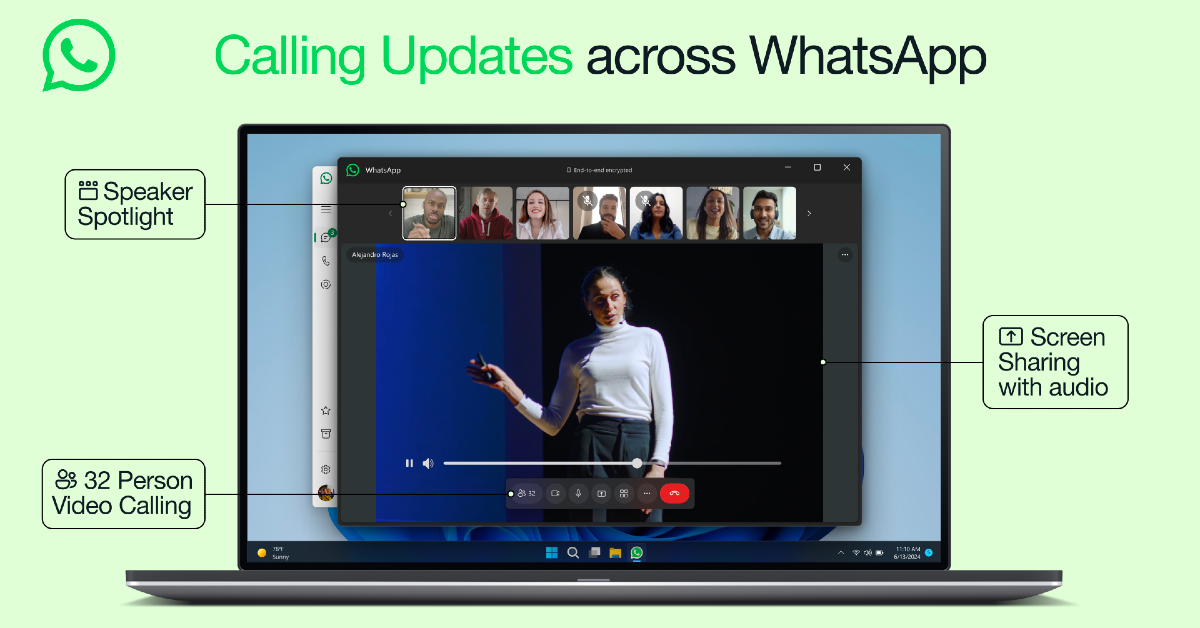WhatsApp has updated its video calling service for desktop and mobile users in a number of ways. Video calls can now include up to 32 people instead of just eight. Users will be able to quickly identify the current speaker in a video call with the introduction of a new feature called “speaker spotlight.” Moreover, Meta has also launched MLow codec (Meta Low Bitrate audio codec) for WhatsApp.
WhatsApp has disclosed enhancements to its mobile and desktop applications for screen sharing and video calls. Now, users can let others listen in on their audio while watching videos. Besides this, Video calls can have up to 32 participants, increasing accessibility across all platforms.
Also Read: Google Pixel 8 gets more affordable, price dropped on Flipkart
In addition to this, WhatsApp also debuts a new feature called “speaker spotlight,” which highlights the person speaking on a call at that moment. With the ability to quickly identify the speaker in a large group conversation without having to look through the participant list, this could be helpful. As per the company, users can “easily see who’s talking with the speaker automatically highlighted and appearing first on screen.”
In the coming weeks, WhatsApp users on desktop and mobile platforms will be able to access the new capabilities.
In addition, Meta just released the MLow codec (Meta Low Bitrate audio codec), which increases call dependability. Improved echo cancellation and noise cancellation on mobile devices facilitate calls in noisy settings, and quicker connections offer higher resolution for video calls. Overall, audio quality is better, regardless of whether you’re using an outdated gadget or have bad network connectivity. MLow can achieve two times better quality than Opus (POLQA MOS 1.89 vs 3.9 @ 6kbps WB).
Also Read: Sony PS5 owners will soon be able to join audio chats on Discord right from their device
“We have already fully launched MLow to all Instagram and Messenger calls and are actively rolling it out on WhatsApp—and we’ve already seen incredible improvement in user engagement driven by better audio quality,” Meta said in a blog post.



